AI Survey
The Impact of AI on the web industry
We surveyed 500+ web designers, developers, marketers and copywriters to get their views on artificial intelligence and its impact on the industry.
Here’s that they said…

0
Support AI regulation
0
Feel AI has improved content quality
0
Are impressed by AI tools
How often is AI used by web professionals?
AI has become a massive part of day-to-day work in the web industry, with 79% of those surveyed using an AI tool at least once per week.
The 11% who never use AI might represent sectors or individuals where AI hasn’t yet proven its value, or where traditional methods are still preferred.
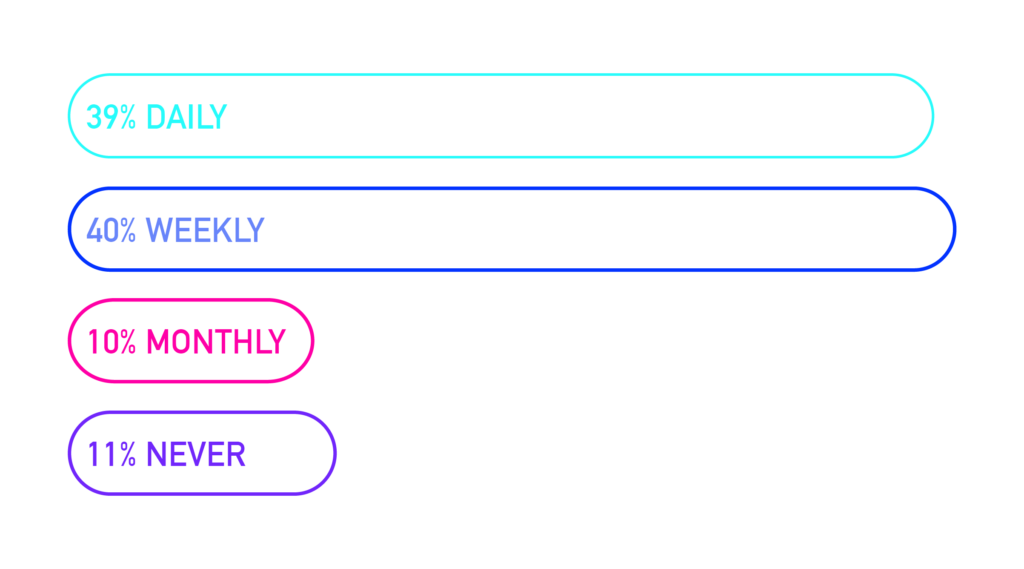
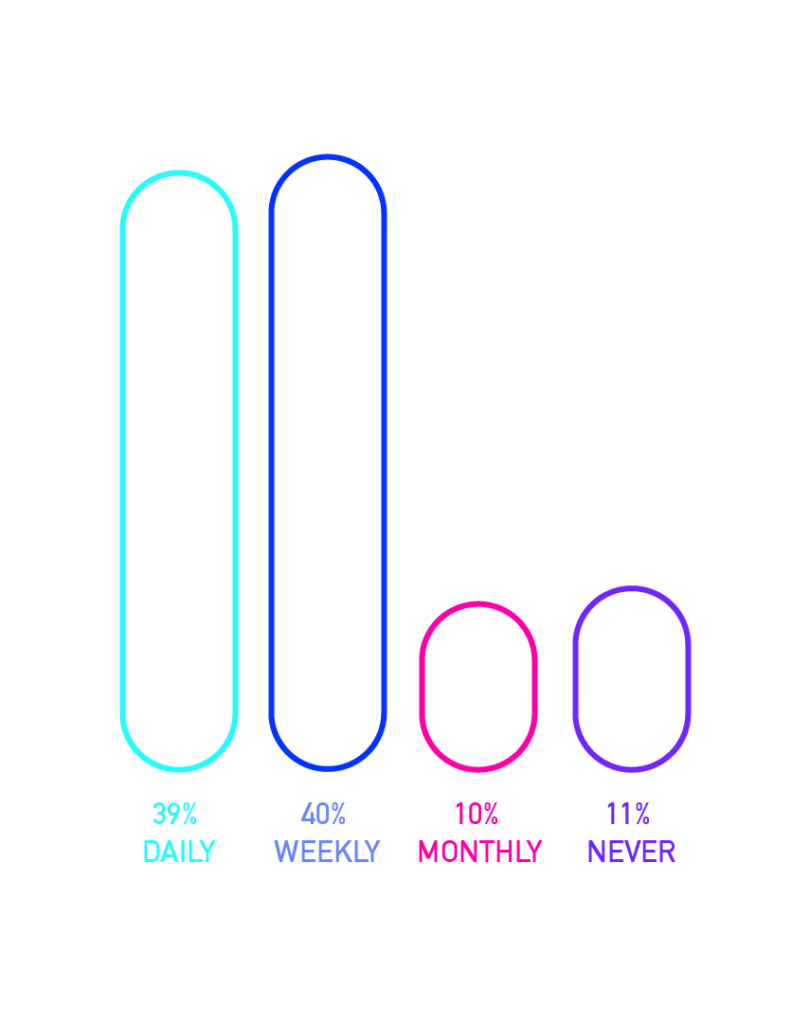
Industry Reactions
Which jobs use AI the most?
Use of AI tools is high across the board, however there is a clear gap between job roles.
Web designers and developers lead with over 48% using AI daily, reflecting its essential role in automating repetitive tasks. Conversely, copywriters show the lowest daily usage at 21%, with another 21% never using AI, highlighting a stronger reliance on human creativity.
Digital marketers fall in between, with a notable 15% never using AI, suggesting some skepticism or lesser dependence on AI for tasks that might still require human intuition and strategic insight.

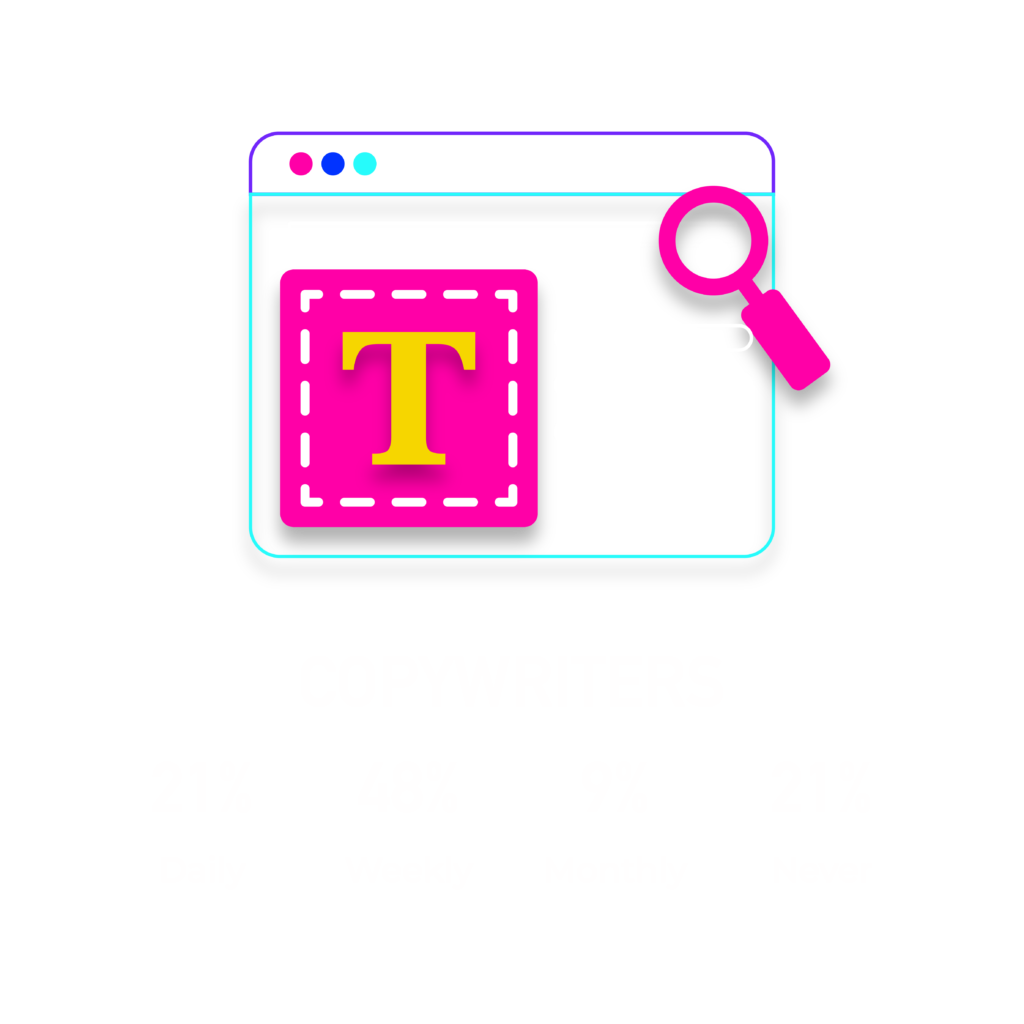
What are AI tools used for?
Unsurprisingly, ideation is a common AI use case across all roles.
However, each profession leverages AI to accelerate time-consuming tasks unique to their work: designers focus on design automation, developers on code generation, and marketers and copywriters on crafting and publishing online content. This highlights AI’s role in enhancing efficiency within the specialised tasks of each job.


Satisfaction with AI tools

The overall satisfaction with AI among the respondents is overwhelmingly positive, with 92% expressing some level of being impressed.
Of those 92%, 44% are “extremely impressed” which suggests that AI is not only meeting but often exceeding expectations, likely due to its ability to significantly enhance productivity and creativity across various tasks.
Industry reactions
AI satisfaction by job role



Overall sentiment is high across the board; however, web designers are by far the most positive, with near unanimous satisfaction
The fact that so few answered “unimpressed” perhaps shows that AI is still quite novel, and users are regularly discovering new uses which continue to excite them.
Copywriters are against lowest on the scale, suggesting that the human touch and insight required to create compelling content still isn’t quite there with AI tools.
How has AI impacted content quality?
The belief that AI improves content quality, held by 75% of respondents, suggests that many see AI as a valuable tool for refining and optimising their work, possibly by enhancing consistency, reducing errors, and speeding up the creative process.
The 13% who feel that AI decreases quality might be concerned about the potential loss of originality or the subtle nuances that human creativity brings to content.
12% thought AI had no impact on quality.

AI impact on content quality by job role

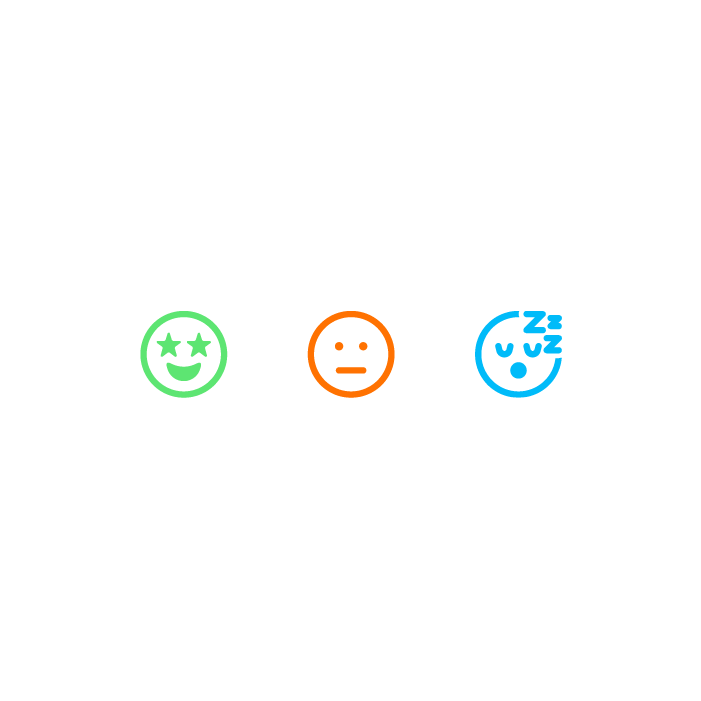

Web designers and developers being more impressed by content quality indicates that AI is particularly effective in technical and design-oriented tasks, likely enhancing precision and efficiency.
Digital marketers also largely see AI as a quality booster, though with slightly more mixed feelings, perhaps reflecting the varied nature of marketing tasks.
Copywriters, again, show the most skepticism, suggesting further that AI may struggle to fully replicate the creative and nuanced aspects of writing, leading to concerns about originality and depth in content creation.
Industry reactions
Concerns on the impact of AI












Whilst AI usage amongst respondents is very high, the vast majority also see potential risks in AI’s growing influence.
The equal 56% who worry about over-reliance on AI and ethical misuse reflect fears that AI could undermine human skills and be used irresponsibly.
Industry reactions
Should AI be regulated?
The overwhelming 84% support for government regulation of AI tools shows that, despite significant uptake, professionals are acutely aware of the risks that come with AI.
The potential for ethical misuse in an unchecked industry is a significant and time– sensitive issue.
The 10% who oppose regulation may believe that innovation could be stifled by government oversight.
Support for regulation was high across the board, ranging from 83% for web designers, up to 88% support from copywriters
Industry reactions
How will AI impact the job market?



This question split opinion amongst respondents more so than any other – with a small majority feeling that AI will negatively effect the job market.
Interestingly, those who self-identified as a “Business Owner/Employer” were least concerned, with 46% believing AI will create jobs, and 18% feeling there will be no impact.
In contrast, those who were employees or freelancers both had a majority leaning toward job losses.
The debate over automation replacing human’s vs creating new opportunities is one which will likely continue for years to come.
AI impact on different job roles
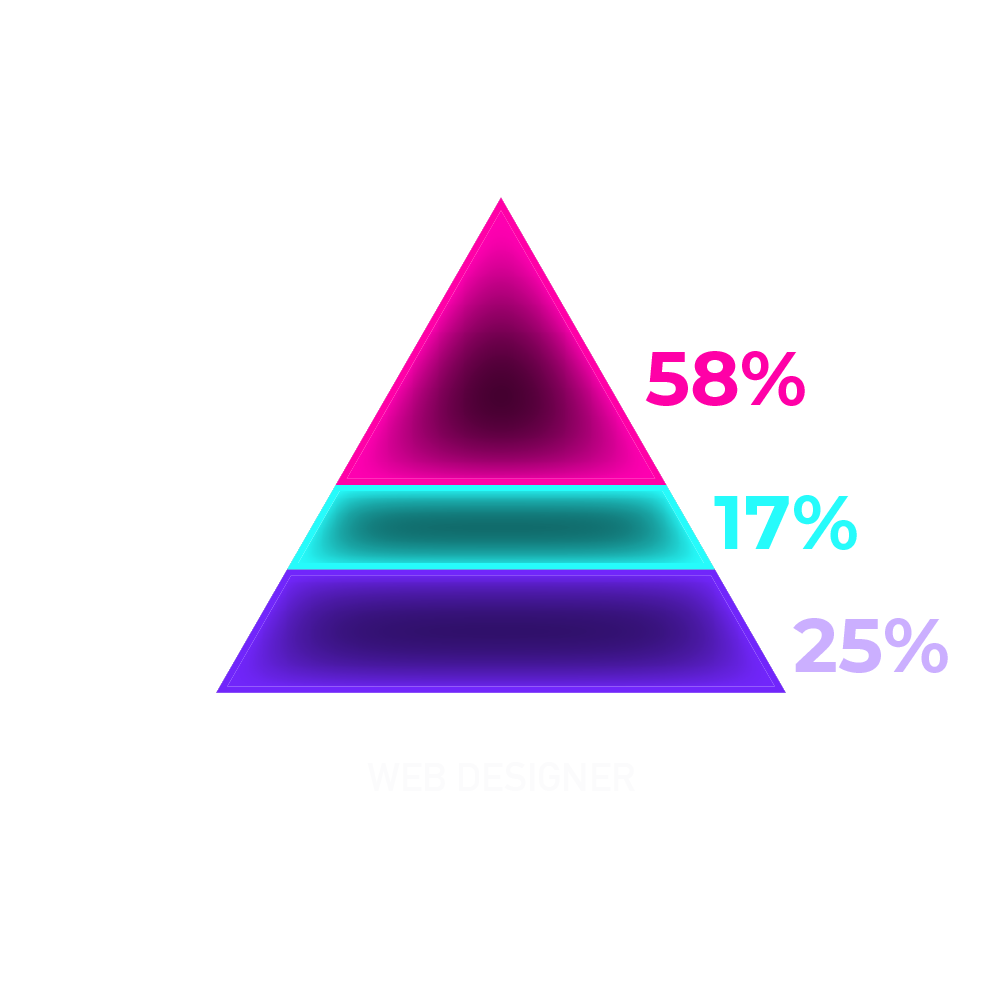









The varying perspectives on AI’s impact on jobs across different roles reveal how professionals perceive AI’s potential in their fields.
Web designers are again the most optimistic, likely viewing AI as a tool which enhances creativity and innovation rather than making humans redundant. Web developers are more divided, reflecting the dual nature of AI in automating coding tasks while also creating opportunities in new tech areas.
Digital marketers and copywriters again show more apprehension, fearing that AI may take away jobs. This anxiety could stem from the increasing use of AI in automating content creation and marketing strategies, which might reduce the need for human input in these roles.
Industry reactions
Closing thoughts
The results of our survey reveal a clear embrace of AI tools among professionals, with impressive results and versatility driving adoption.
However, it is hard to ignore the potential problems that rapid roll out of these new technologies can bring. Ethical implications, overreliance risks, and job security concerns are understandable anxieties. The very close split between those who feel AI will take away human jobs, and those who believe it will create jobs, also highlights the split of opinions on what the future holds – and will likely fuel debates for years to come.
Overall, these findings underscore the need for a balanced approach. While harnessing AI’s potential to boost efficiency and creativity is essential, establishing safeguards to avoid malicious use is equally crucial. The majority who call for US governmental regulation of AI is likely to only grow larger as adoption rates increase

ABOUT US
Expect more from your hosting
For over 25 years we’ve delivered lightning-fast, ultra-reliable hosting and affordable domain names to agencies, businesses, eCommerce & side-hustlers. With data centers in the US & UK, alongside a global CDN network, you can receive lighting fast, reliable hosting from 20i wherever you are in the world.






